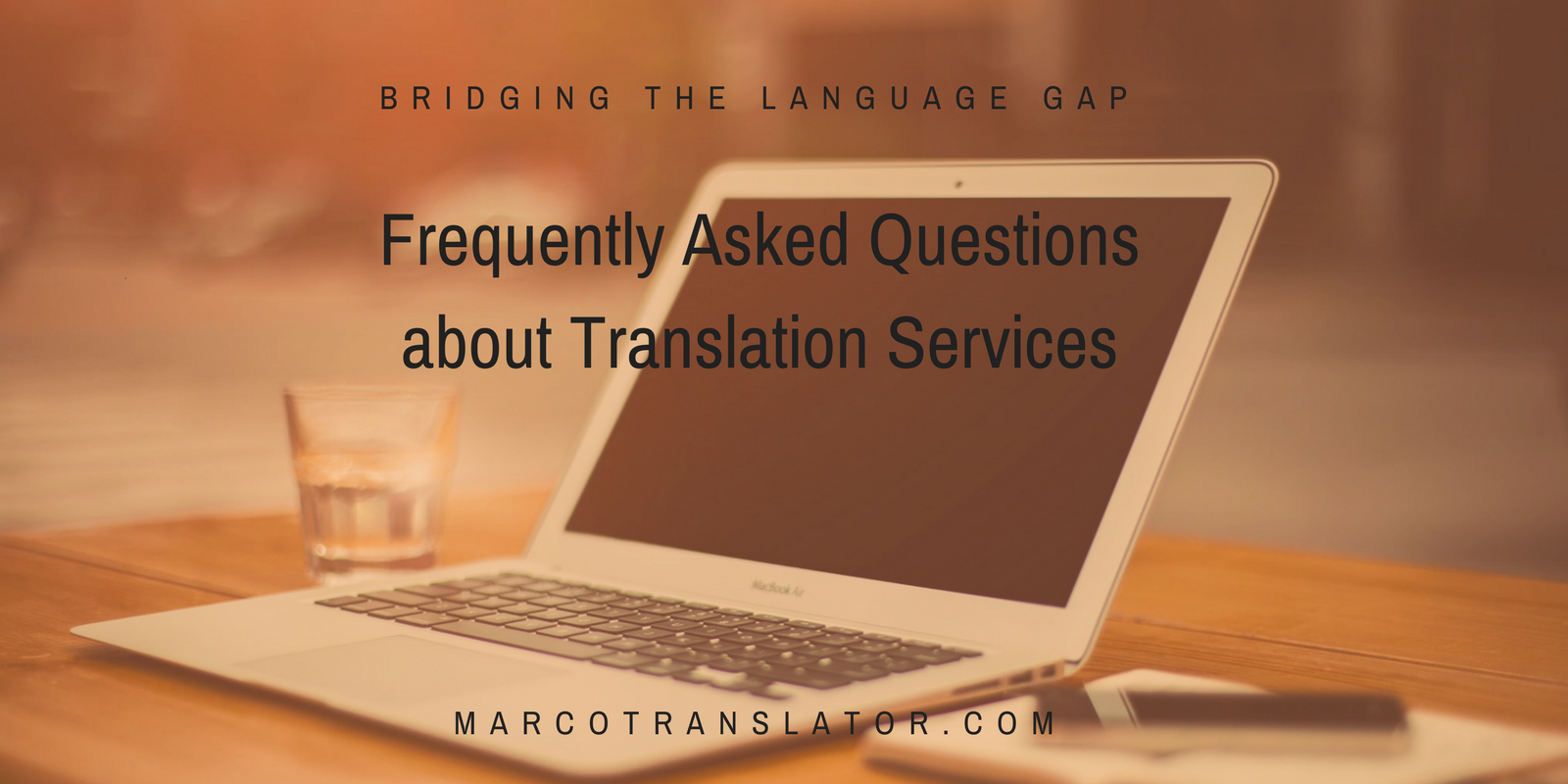Frequently Asked Questions about Translation Services
1. What is the difference between translation and interpreting?
As much as this frequently asked question has been discussed in language-related forums, it seems that only those who have experience or have received formal education in the field know the answer to this question. It is relatively easy to know and remember the difference: in a few words, translators deal with the written word while interpreters deal with the spoken word.
To put it in real-life context, translators normally produce written documents that cover a broad range of types like official and legal documents, business communications, financial statements, marketing brochures, website content, articles, books, etc. Interpreters perform their tasks at conferences, legal hearings, meetings, and hospitals and it usually requires that they render the communication on the spot.
Going one step further, the difference between translation and interpreting also lies in the set of skills required for each task. Translators are writers as well because they need to produce texts that read as if they were originally written in the target language, with the natural fluidity of a native speaker including the proper style, register, and tone for the target audience.
Interpreters, on the other hand, are also highly-skilled professionals that have great fluency in their particular language pair. I take off my hat to interpreters because I truly believe their brains are wired in a special way. They need to have all the idiomatic expressions, proverbs, and even jargon of both languages on the tip of their tongues in order to render accurate interpretations.
2. Do I need to translate my texts in full?
There are many situations in which you might not need to translate your texts in full. For example, if you are trying to convey your message to a foreign client, there might be superfluous information that does not apply to them. This is why it is important to analyze what are the most relevant sections of your text in order to make the most of your translation projects. The translator's job is to help you reduce the padding to focus on the most important aspects of your translation project.
3. Is style important?
For the most part, absolutely. Style may not be that important when a text will only be used for informational purposes, yet the object of most translations is to persuade. Linguists who translate into their native languages will have a better command of a culturally appropriate style depending on the context. This is why non-native translators or machine translation usually produce texts that sound stiff, and can be made faster and more cheaply; however, they might not flow with a natural tone and may sound "contaminated" by the source language.
For instance, in legal translation not only is it required to convert a text to a different legal system, you must also adapt the text to the proper style used by jurists in their own system. If a document from a common law system is to have legal effects in a civil law system, the style, the terminology, and the legal concepts should read as if they had been originally written in the latter system.

